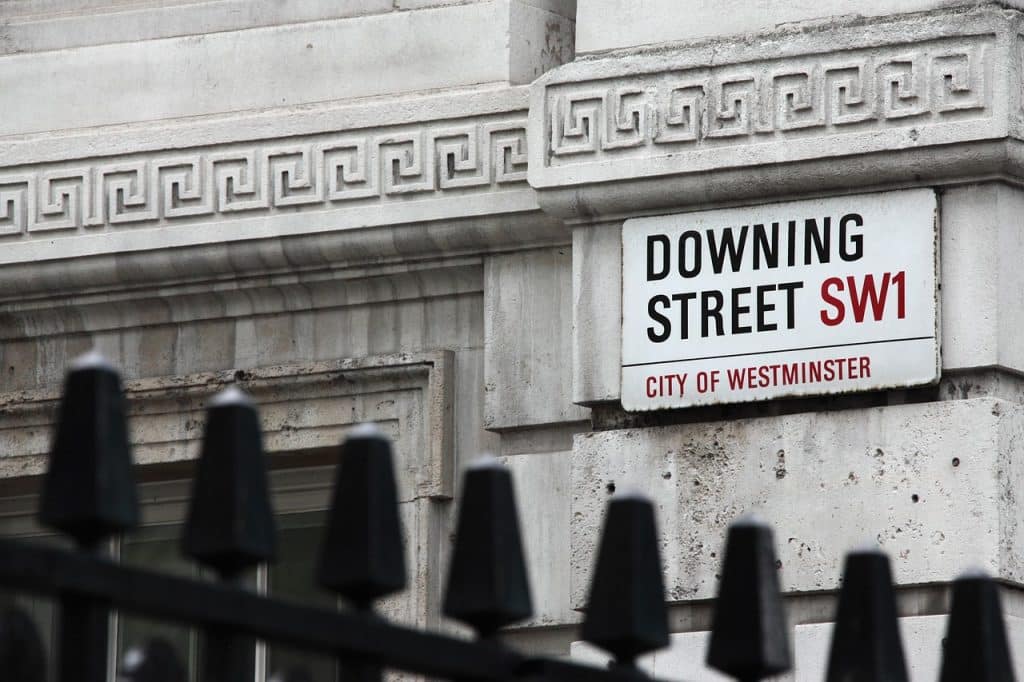Boris Johnson and Keir Starmer have little in common when it comes to leadership styles. The former relied heavily on charisma and personality to win over MPs and the public. The latter has risen to polling success via a strict and principled approach, albeit with a distinct lack of pizzazz.
However, one similarity is the iron fist with which both have ruled over dissenting voices within their respective parties over specific issues. After winning an impressive majority in his snap election, Boris Johnson notoriously removed the whip from 21 MPs in 2019 over his no-deal Brexit strategy.
Keir Starmer has, likewise, ousted or demoted many MPs on the left of the party, including former leader Jeremy Corbyn; Rebecca Long-Bailey; Diane Abbott; and Sam Tarry for a variety of reasons. The Labour leader has vowed to be ‘ruthless’ in altering the party’s image before the next election.
On the face of it, the technique appears successful in rallying support; Boris Johnson was able to “get Brexit done”, a result which evaded Theresa May, and Keir Starmer’s loyal Labour is viewed as fit-to-govern after 13 years of (regardless of your views on Corbynism) limited success at the polls. But does it function in the long-term, and at what cost?
For Johnson, the draconian party whip was unable to prevent the record-slashing mass resignation of 62 members of government in July 2022. In fact, maybe it was a contributing factor; perhaps the cut-throat behaviour alienated even the charm of BoJo, and encouraged people to consider a path that would have otherwise been unthinkable.
What I mean is: if you are reminded from the start of a term just how dispensable you are, perhaps it would make you not only disenfranchised, but reconsider fears about doing the dispensing yourself.
There is a fine line between fear and revolt. There are a multitude of failings one could point to for the demise of Johnson. But the self-condemnation to a fractured party certainly did not help. And as a firm believer in using dialogue to drive decision-making, I am curious to see how this leadership style is going to pan out for our Prime Minister-in-waiting.
Tensions are already high between devolved powers amongst the Labour party; Keir Starmer has butted heads with the mayors of London and Manchester over policy issues like ULEZ and the Manchester Baccalaureate. Andy Burnham was also particularly outspoken regarding the party’s ousting of fellow mayor Jamie Driscoll, calling the act undemocratic.
After 13 years in opposition, toeing the party line is likely easier to stomach for most political representatives in Labour. However, if there is a landslide Labour victory in the next general election, public mandate alone is not enough to protect the leadership from the wrath of disaffected MPs.
If conflicts are pertinent now, we can only expect them to increase in government, where the stakes of not presenting a united electable party to the public are significantly lowered. It is understandable that there are insecurities about weak leadership or deference to unfavourable ideologies in the Labour leadership. You don’t have to agree with, or even appease, dissenting voices, but if Johnson’s trajectory is anything to go by, you should certainly listen to them.
It will only strengthen Labour’s proposals if Starmer is able to defend them against criticism as opposed to dismiss it on principal. At the very least, sticking with advocacy for communication (as one should in any healthy relationship) I would hope Sue Gray, as Keir’s Chief-of-Staff, will play a pivotal role in damage control, to the extent that collective responsibility is revered.
She has already demonstrated her worth in this regard in the aforementioned mayoral spats and, with her background, is well-positioned as a less factionalist fret of the senior team.
Returning to the comparison between the PM-to-be and the recent Prime Minister: their differing ideals are a reason to hold out hope with the former’s slight of hand on banishing dissenting voices.
Recognising my inherent bias on this, it is also true that prior to being an MP, Keir had a long-standing career as a barrister and spent 5 years as Director of Prosecutions. Contrastingly, Boris has taken up a permanent post on GB News post-premiership, no doubt in exchange for a hefty pay-out, something which he complained was lacking whilst sat in the highest public office.
The latter’s career has been characteristically self-serving, and the former has maintained a steadfast commitment to the public. Irrespective of opinions on Labour’s stark shift to the right, that difference in dedication to public institutions should translate into better leadership.
It will hopefully mean that Labour’s government sets a long-term agenda with the betterment of society truly at its core, instead of a scatty lack of direction which pushes disgruntled MPs to their breaking point.
Personally, if the harsh reshufflings are a temporary means to a justifiable end in the election, I can see the logic behind them. Whether Keir Starmer has a vision for the UK that supports them is not yet apparent.



